October 20, 2008
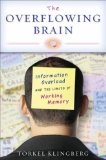
The Overflowing Brain: Information Overload and the Limits of Working Memory by Torkel Klingberg (Oxford University Press, 2008) (“Search Inside the book” available at Amazon).
Product Description
As the pace of technological change accelerates, we are increasingly experiencing a state of information overload. Statistics show that we are interrupted every three minutes during the course of the work day. Multitasking between email, cell-phone, text messages, and four or five websites while listening to an iPod forces the brain to process more and more information at greater and greater speeds. And yet the human brain has hardly changed in the last 40,000 years.
Are all these high-tech advances overtaxing our Stone-Age brains or is the constant flood of information good for us, giving our brains the daily exercise they seem to crave? In The Overflowing Brain, cognitive scientist Torkel Klingberg takes us on a journey into the limits and possibilities of the brain. He suggests that we should acknowledge and embrace our desire for information and mental challenges, but try to find a balance between demand and capacity. Klingberg explores the cognitive demands, or “complexity,” of everyday life and how the brain tries to meet them. He identifies different types of attention, such as stimulus-driven and controlled attention, but focuses chiefly on “working memory,” our capacity to keep information in mind for short periods of time. Dr Klingberg asserts that working memory capacity—long thought to be static and hardwired in the brain—can be improved by training, and that the increasing demands on working memory may actually have a constructive effect: as demands on the human brain increase, so does its capacity.
The book ends with a discussion of the future of brain development and how we can best handle information overload in our everyday lives. Klingberg suggests how we might find a balance between demand and capacity and move from feeling overwhelmed to deeply engaged.
See also: Author’s web page
Comments (0)
- cognitive science,mind
October 16, 2008
“Arguing for Embodied Consciousness” at Deric Bownds’ Mindblog excerpts a review from Science of What Science Offers the Humanities: Integrating Body and Culture by Edward Slingerland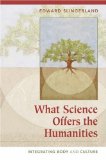 . This book came up earlier in a review article on evolutionary psychology in The Walrus (Sept. 2008).
. This book came up earlier in a review article on evolutionary psychology in The Walrus (Sept. 2008).
Google Video has a talk by Slingerland from “Beyond Belief: Enlightenment 2.0” (Dec. 2007). Check out the “related videos” there for Daniel Dennett and other speakers.
Product description for the book:
Product Description
What Science Offers the Humanities examines some of the deep problems facing current approaches to the study of culture. It focuses especially on the excesses of postmodernism, but also acknowledges serious problems with postmodernism’s harshest critics. In short, Edward Slingerland argues that in order for the humanities to progress, its scholars need to take seriously contributions from the natural sciences-and particular research on human cognition-which demonstrate that any separation of the mind and the body is entirely untenable. The author provides suggestions for how humanists might begin to utilize these scientific discoveries without conceding that science has the last word on morality, religion, art, and literature. Calling into question such deeply entrenched dogmas as the “blank slate” theory of nature, strong social constructivism, and the ideal of disembodied reason, What Science Offers the Humanities replaces the human-sciences divide with a more integrated approach to the study of culture.
Comments (2)
- culture
October 15, 2008
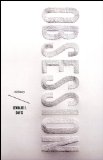
Obsession: A History by Lennard J. Davis (University of Chicago Press, 2008).
Product Description
We live in an age of obsession. Not only are we hopelessly devoted to our work, strangely addicted to our favorite television shows, and desperately impassioned about our cars, we admire obsession in others: we demand that lovers be infatuated with one another in films, we respond to the passion of single-minded musicians, we cheer on driven athletes. To be obsessive is to be American; to be obsessive is to be modern.
But obsession is not only a phenomenon of modern existence: it is a medical category—both a pathology and a goal. Behind this paradox lies a fascinating history, which Lennard Davis tells in Obsession. Beginning with the roots of the disease in demonic possession and its secular successors, Davis traces the evolution of obsessive behavior from a social and religious fact of life into a medical and psychiatric problem. From obsessive aspects of professional specialization to obsessive sex and nymphomania, no variety of obsession eludes Davis’s graceful analysis. Obsession also considers the clinical definition of the condition: Davis investigates the huge increase (estimates suggest up to 600-fold) in diagnosis of obsessive-compulsive disorder over the past thirty years. Surveying the many ways in which doctors today treat OCD, he points out the limitations of and contradictions within the biological definitions of the disease.
Impassioned, witty, and learned, Obsession is for anyone—from compulsive hand washers to professional psychologists—who has been fascinated by, struggled with, or cultivated obsession.
Comments (0)
- new books,psychology
October 13, 2008
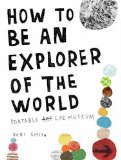
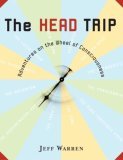
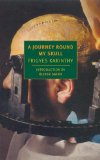
In honor of Columbus Day, learn How to Be an Explorer of the World with Keri Smith, take a Head Trip with Jeff Warren, or follow Frigyes Karinthy on A Journey Round [His] Skull.
Comments (0)
- mind








